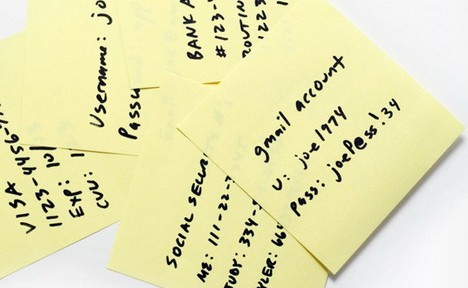The company immediately announced it would be entering the market with its OneScan service – a series of authentication and transaction applications based on the patented process and built on Ensygnia encrypted QR (eQR) codes.
Announcing its market entry, CEO and co-founder Richard H Harris said: “At a stroke Ensygnia is making simple password protection a thing of the past and revolutionising Internet security and safety for all the providers – and all the users – of company networks, online stores, and social media services.
“Using OneScan we can deliver a level of identification and authentication security greater than that used by consumer banks today – without the need for specialist devices. We will be able to offer OneScan to register, to log-in, to pay at the online check-out, or to simply buy goods as they are advertised in magazines, on TV and even in shop windows when the stores are closed.”
Ensygnia’s CTO and co-founder Matt Deacon explained that the two-communication channel approach of OneScan was only one element of the strengthened security process of the service.
“With OneScan, users will no longer need to enter their ID or user name into a browser,” he said. “Accessing a web service or network that uses OneScan will generate a unique Ensygnia encrypted QR code (eQR) which users simply scan to deliver their log-in credentials to the service over the separate mobile connection.
“Other security checks – including personal questions or password phrases – can be added to the process on the mobile to further strengthen security if required,” he added, “but once these are completed you are automatically logged on to the service you are trying to access. In this way, your ID and your authentication information are kept completely invisible and out of band during the log-in and only come together in the background within the service.”
For online retail stores Harris added that OneScan could mean an end to ever entering credit or debit card information into a web site again. “After registering once with Ensygnia on a secure channel, users could shop online safely and securely using OneScan to confirm purchases,” he said.
“At the check-out stage of the online process,” he explained, “instead of entering financial and personal information into the website, users would simply scan an eQR Code and confirm the transaction on our separate channel. All the required banking and delivery information would be provided to the site in the background on the separate channel.”
Harris also explained that stores and advertisers could include eQR codes alongside products in magazines, shop windows, or on television as well as the web allowing OneScan customers to quickly and securely buy goods with a single scan with no requirement to register, log-on or provide any financial information.
The company said that it was already in advanced dialogue with a number of major international retailers, companies, financial institutions and organisations and was now opening Beta stage testing of OneScan to a selection of partners.
Harris and Deacon formed Ensygnia in 2011 and have strong backgrounds in Internet Security, online fraud prevention and identity management with companies including Microsoft, Texas Instruments, Swivel Secure, Clearswift, Tumbleweed and Mobix. Amanda Mesler, CEO of Logica Consulting in the UK and Andrew Nash, Head of Identity Management for Google are also on the Ensygnia main board.
Visit www.ensygnia.com for more information and to register for Beta trials.


